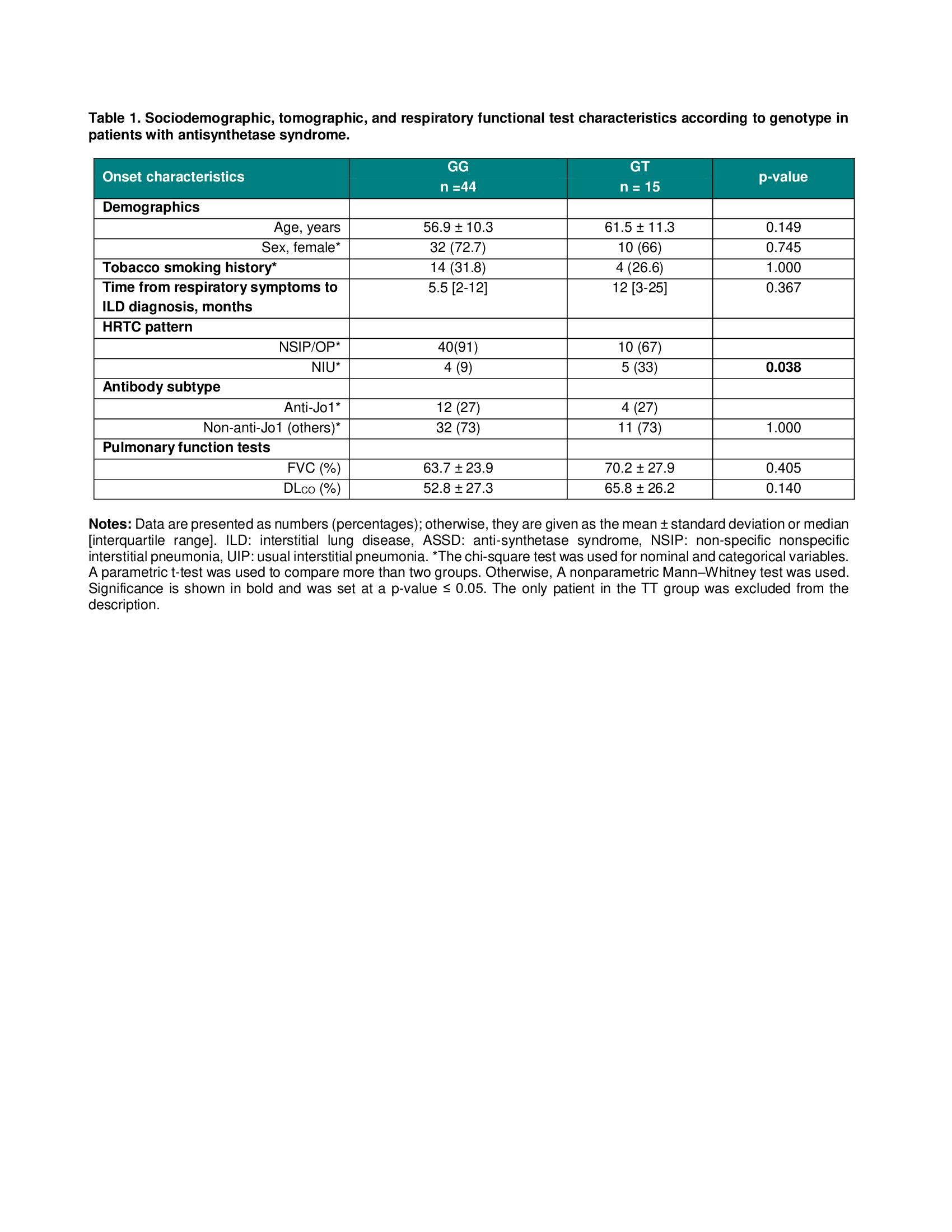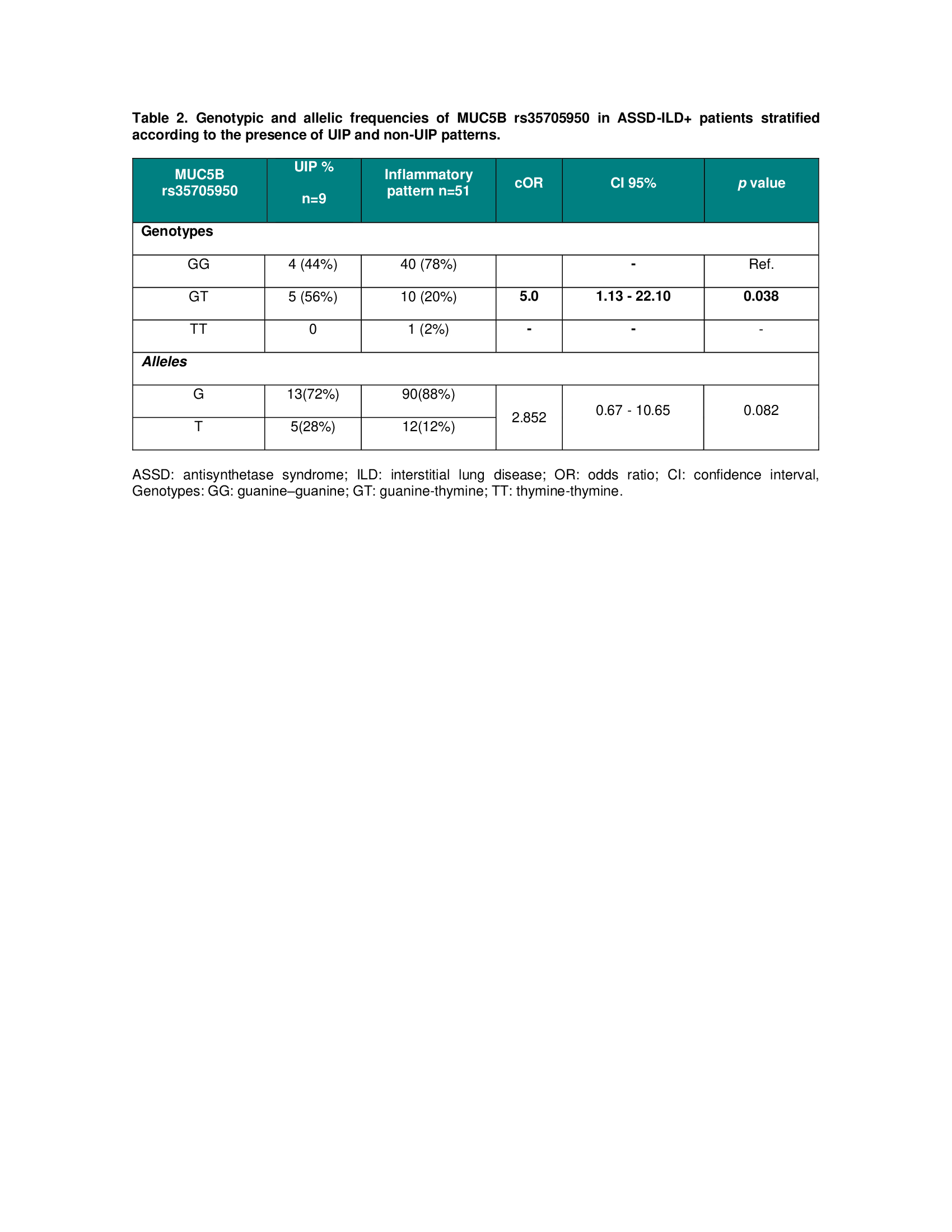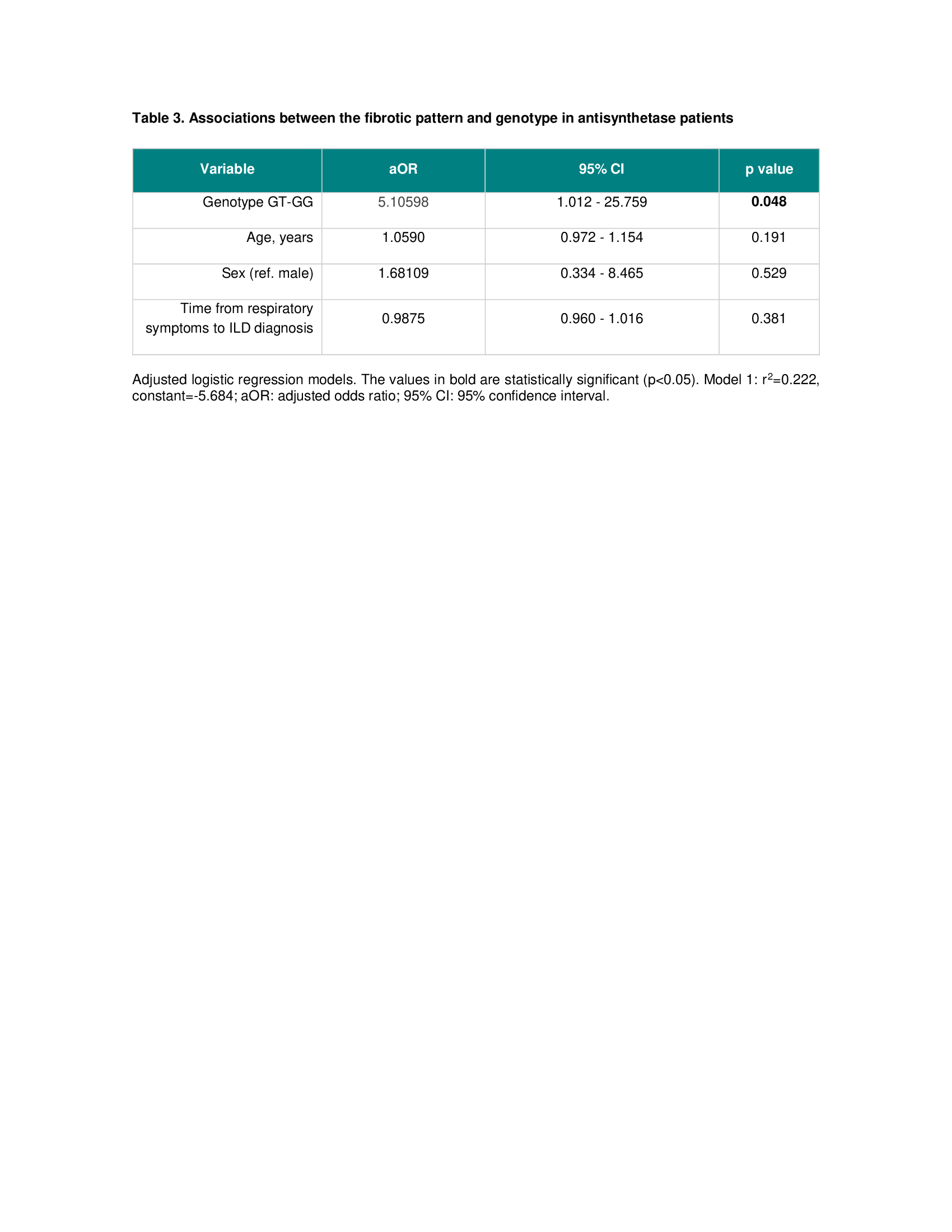Session Information
Date: Monday, November 18, 2024
Title: Muscle Biology, Myositis & Myopathies – Basic & Clinical Science Poster III
Session Type: Poster Session C
Session Time: 10:30AM-12:30PM
Background/Purpose: Rs35705950 variant in the MUC5B gene promoter is a critical genetic risk factor in idiopathic pulmonary fibrosis (IPF). It has been associated with usual interstitial pneumonia (UIP) in several interstitial lung diseases (ILDs). In antisynthetase syndrome (ASSD), most high-resolution computed tomography (HRCT) patterns are inflammatory, but up to 13% have UIP, leading to a worse prognosis.The aim of this study was to investigate whether carrying the MUC5B rs35705950 promoter variant was associated with UIP.
Methods: This single-center study included 60 patients with ASSD-ILD. Patients aged 18 years or older, independent of sex, with a confirmed diagnosis of interstitial lung disease (ILD) by high-resolution computed tomography (HRCT) in the three months before enrollment and positivity for one of the following autoantibodies: anti-Jo1, anti-PL7, anti-PL12, and anti-EJ were included. Categorical variables were presented as frequencies and percentages. According to their distribution, numerical variables were presented as mean ± standard deviation (SD) or median and interquartile range (IQR). The Shapiro-Wilk test was used to determine the distribution of variables. The chi-square test was used to analyze independence between nominal variables and to obtain the crude odds ratio (cOR) to investigate the strength of the association between the genotype of the MUC5B rs35705950 promoter variant and the fibrotic pattern. Logistic regression analysis was performed to assess the effect of potential confounding variables (age, time of evolution, and sex) between fibrotic pattern and genotype to obtain an adjusted odds ratio (aOR).
Results: We included sixty patients with ILD who were positive for anti-ARS antibodies; the mean age was 58 ± 11 years, and 72% were women. Regarding the frequency of antibodies, 27% were anti-Jo1, 27% were anti-PL7, 28% were anti-PL12, 13% were anti-EJ, and 5% were anti-OJ. Most of the tomographic patterns were inflammatory (85%, NSIP or OP), and 15% presented a fibrotic pattern (UIP). Regarding MUC5B rs35705950, 73% of patients had the GG genotype, 25% had the GT genotype, and only one had the TT genotype, being an incident ILD case with PL7 positivity. The remaining characteristics are summarized in Table 1.The GT genotype of the MUC5B rs35705950 promoter variant was associated with up to a 4-fold increase in the UIP pattern compared to that of carriers of the GG genotype (Table 2). This effect was maintained even after adjusting for potential confounding variables such as sex, age, and time of evolution (p=0.044, OR 5.2, 95% CI 1.04 – 25.89).
Conclusion: Our study supports the role of MUC5B rs35705950 in ASSD-ILD with a UIP pattern. This reinforces that fibrotic lung patterns may be linked to this genetic basis, as observed in other interstitial lung diseases . Second, it has crucial clinical implications. There is a poor response to immunosuppressive therapy and high mortality associated with fibrosis. Identifying ASSD-ILD patients carrying this variant allows us to identify patients at greater risk of developing UIP. This could enable close follow-up and, therefore, timely initiation of antifibrotic therapy, improving outcomes and mortality in patients with ASSD-ILD.
To cite this abstract in AMA style:
Rivero Gallegos D, Mejía M, Nava-Quiroz K, Mateos-Toledo H, Rocha-González H, Huerta-Cruz J, Ramos-Martínez E, Pérez-Rubio G, Fricke-Galindo I, Rojas-Serrano J, Falfán-Valencia R. The Rs35705950 Promoter Variant of Muc5b Is Associated with Usual Interstitial Pneumonia in Antisynthetase Syndrome [abstract]. Arthritis Rheumatol. 2024; 76 (suppl 9). https://acrabstracts.org/abstract/the-rs35705950-promoter-variant-of-muc5b-is-associated-with-usual-interstitial-pneumonia-in-antisynthetase-syndrome/. Accessed .« Back to ACR Convergence 2024
ACR Meeting Abstracts - https://acrabstracts.org/abstract/the-rs35705950-promoter-variant-of-muc5b-is-associated-with-usual-interstitial-pneumonia-in-antisynthetase-syndrome/



